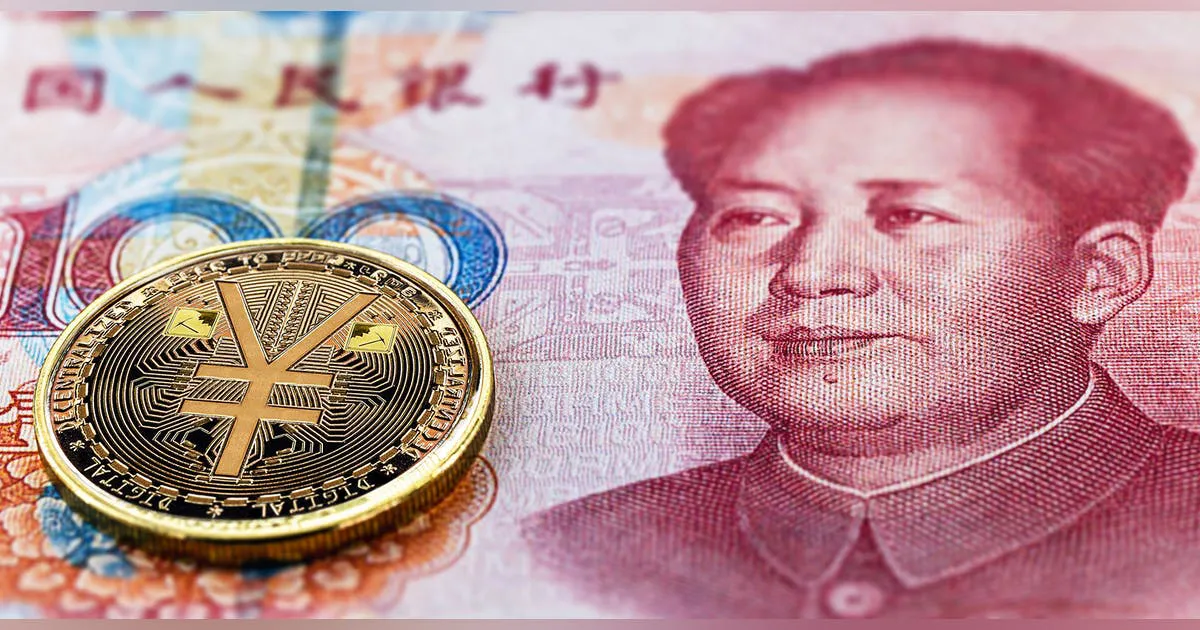China Unveils Digital Yuan Wallet as Bitcoin Ban Continues
China's central bank digital currency pilot has been rolled out as the country continues to ban cryptocurrency. The Asian giant is in the process of piloting its electric Chinese yuan (e-CNY) network. This is the initial public offering of the e-CNY wallet.

At the start of last year, China banned the Bitcoin mining industry; where more than half all new BTC were minted.
But even as China cracked down on crypto, it intensified its plans for a central bank digital currency—an electronic version of the country's fiat currency that will ultimately make bills and coins outdated—and started piloting the project in regions across the country.
China made its e-CNY wallet publicly accessible for download through the country's Apple and Android app stores, on Tuesday.
The wallet was previously accessible for download through a private link. Chinese nationals in cities covered by the exercise, such as Shenzhen and Shanghai can enroll for the pilot version. Foreigners will also be able to use the app during Winter Olympics events slated for next month.
Many governments are reviewing central bank digital currencies (CBDCs) in their efforts to go cashless and improve security while reducing the cost and enhancing the speed of transactions.
Per the CBDCTracker.org, two countries have unveiled CBDCs: the Bahamas launched the Sand Dollar in October 2020, while Nigeria rolled out the e-Naira last October.

However, with a population of 1.4 billion, the country represents the most extensive test yet for state-approved digital currencies. The developer of the project and head of the Digital Currency Research Institute stated that more than 140 million Chinese nationals had opened accounts by October 2021.
On the other hand, Alipay, a marketplace for finances built by Ant Group, counts more than 90% of the Chinese residents as users. It's like a blend between Geico PayPal, Uber and Venmo, and a bank. Tencent's WeChat Pay is also available in China.
The digital yuan might enable the government to end Ant Group and Tencent's dominance on payments infrastructure, since it has announced it intends to use the e-CNY network to improve financial scrutiny.
Concerning skepticism on the Chinese government's objectives on the use of crypto, Carnegie says, "Its success could weaken dominant incumbent payment platforms, enabling policymakers to bring these platforms in closer alignment with Chinese financial regulators' objectives, such as cracking down on unauthorized cross-border capital flows and Bitcoin trading."
Simply put, less financial privacy.
Chinese authorities have been promoting digital yuan lotteries to incentivize the citizens to adopt the network, channeling $4.7 million (30 million yuan).
December 22nd, 2022
China's State Media Xinhua to Offer NFTs
State-run Xinhua will unveil NFTs this Friday, in a clear contradiction of the government's anti-cryptocurrency stand. China's official state-run media Xinhua announced Wednesday that it intends to offer a series of NFTs for free on Christmas Eve at noon UTC through its news app.
The press agency's NFT drop will feature 11 distinct collections of photojournalism, about 10,000 copies each. It will also feature one "special edition" collection showcasing multiple enchanting memorable moments of 2021.
Remarkable moments commemorated in the new collection feature the Chinese Communist Party's centenary honoring in Tiananmen Square and the country's milestone of having conducted more than 2.7 billion inoculations.
Xinhua used the government's-approved Zxchain; the blockchain of leading local social media platform, Tencent to create the collectibles.
Cryptocurrencies in China
The announcement by Xinhua is a contradiction to the Chinese authorities' official stand on crypto; this year the Chinese government has cracked down on cryptocurrency businesses in the communist country, affecting international markets.
For instance, BTC prices dropped in May, when three of China's leading payment companies reaffirmed their backing for the country's central bank's 2017 crackdown on crypto activities.
By mid-summer, China had started shutting down mining activities within its border, disconnecting power to more than 26 mining farms in Sichuan province).
The government also banned local mining operations in Xinjiang, forcing many crypto miners to relocate abroad]. This ban has made the U.S. become the leading Bitcoin mining market in the world. BTC's mining hashrate has since recovered from its summer decline.
Amid the government's negative stand on cryptocurrency, Chinese investors have put money into the new 'metaverse', a move to establish shared digital worlds that are anticipated to be supported by NFTs and crypto.
First published on Jan 5, 2022
Bitcoin